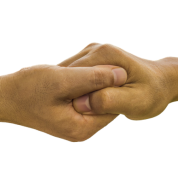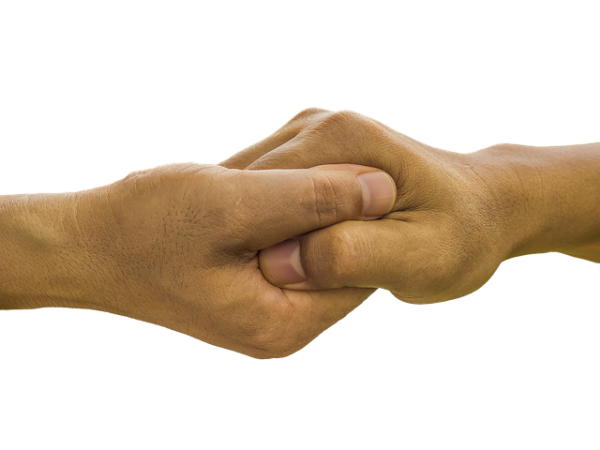
Many wisdom teachings speak about how our natural compassion can be awakened when we ‘moisten the heart ‘ with our tears. The Dalai Lama has been seen at times, crying deeply in front of large crowds of people. I have often wished that I could share my feelings as freely as he does. It takes a lot of freedom and humility, to share our tears with other human beings. Learning to let our tears flow has a tenderizing, softening influence on us. It dissolves our sense of separation and connects us with our basic, fundamental humanity. In our post- modern culture, we spend a lot of time trying to be strong, brave, tough, on top of it. One of the easiest ways to soften all of this hardness is through sharing the stories that shake us up, melt us down, turn us inside out.
This story was published in the New York Times. It made a lot of people cry, including me. It expresses quite vividly the sacred Peruvian teaching of ‘ayni’, or ‘sacred reciprocity.’ Anyi literally translated means, ‘today for you, tomorrow for me.’ It’s more than a belief, it’s a way of living, trusting in an intelligent universe based on reciprocity, on an unending, generous flow of giving and receiving, in which we can all participate, in which we can all care and be cared for.
I dedicate this writing to Rene Franco Salas and his family in Pisac, Peru, who have taught me a great deal about the blessings that come to us when we align ourselves with ayni.
The Tire Iron and the Tamale
By Justin Horner
During this past year I’ve had three instances of car trouble: a blowout on a freeway, a bunch of blown fuses and an out-of-gas situation. They all happened while I was driving other people’s cars, which for some reason makes it worse on an emotional level. And on a practical level as well, what with the fact that I carry things like a jack and extra fuses in my own car, and know enough not to park on a steep incline with less than a gallon of fuel.
Each time, when these things happened, I was disgusted with the way people didn’t bother to help. I was stuck on the side of the freeway hoping my friend’s roadside service would show, just watching tow trucks cruise past me. The people at the gas stations where I asked for a gas can told me that they couldn’t lend them out “for safety reasons,” but that I could buy a really crappy one-gallon can, with no cap, for $15. It was enough to make me say stuff like “this country is going to hell in a handbasket,” which I actually said.
But you know who came to my rescue all three times? Immigrants. Mexican immigrants. None of them spoke any English.
One of those guys stopped to help me with the blowout even though he had his whole family of four in tow. I was on the side of the road for close to three hours with my friend’s big Jeep. I put signs in the windows, big signs that said, “NEED A JACK,” and offered money. Nothing. Right as I was about to give up and start hitching, a van pulled over, and the guy bounded out.
He sized up the situation and called for his daughter, who spoke English. He conveyed through her that he had a jack but that it was too small for the Jeep, so we would need to brace it. Then he got a saw from the van and cut a section out of a big log on the side of the road. We rolled it over, put his jack on top and we were in business.
I started taking the wheel off, and then, if you can believe it, I broke his tire iron. It was one of those collapsible ones, and I wasn’t careful, and I snapped the head clean off. Damn.
No worries: he ran to the van and handed it to his wife, and she was gone in a flash down the road to buy a new tire iron. She was back in 15 minutes. We finished the job with a little sweat and cussing (the log started to give), and I was a very happy man.
The two of us were filthy and sweaty. His wife produced a large water jug for us to wash our hands in. I tried to put a 20 in the man’s hand, but he wouldn’t take it, so instead I went up to the van and gave it to his wife as quietly as I could. I thanked them up one side and down the other. I asked the little girl where they lived, thinking maybe I’d send them a gift for being so awesome. She said they lived in Mexico. They were in Oregon so Mommy and Daddy could pick cherries for the next few weeks. Then they were going to pick peaches, then go back home.
After I said my goodbyes and started walking back to the Jeep, the girl called out and asked if I’d had lunch. When I told her no, she ran up and handed me a tamale.
This family, undoubtedly poorer than just about everyone else on that stretch of highway, working on a seasonal basis where time is money, took a couple of hours out of their day to help a strange guy on the side of the road while people in tow trucks were just passing him by.
But we weren’t done yet. I thanked them again and walked back to my car and opened the foil on the tamale (I was starving by this point), and what did I find inside? My $20 bill! I whirled around and ran to the van and the guy rolled down his window. He saw the $20 in my hand and just started shaking his head no. All I could think to say was, “Por favor, por favor, por favor,” with my hands out. The guy just smiled and, with what looked like great concentration, said in English: “Today you, tomorrow me.”
Then he rolled up his window and drove away, with his daughter waving to me from the back. I sat in my car eating the best tamale I’ve ever had, and I just started to cry. It had been a rough year; nothing seemed to break my way. This was so out of left field I just couldn’t handle it.
In the several months since then I’ve changed a couple of tires, given a few rides to gas stations and once drove 50 miles out of my way to get a girl to an airport. I won’t accept money. But every time I’m able to help, I feel as if I’m putting something in the bank.
Justin Horner is a graphic designer living in Portland, Ore. This essay was adapted from a message-board posting on reddit.com.
with love,
Shayla
One Comment
Join the conversation and post a comment.



Deeply Touched…thank you Shayla, so much!!